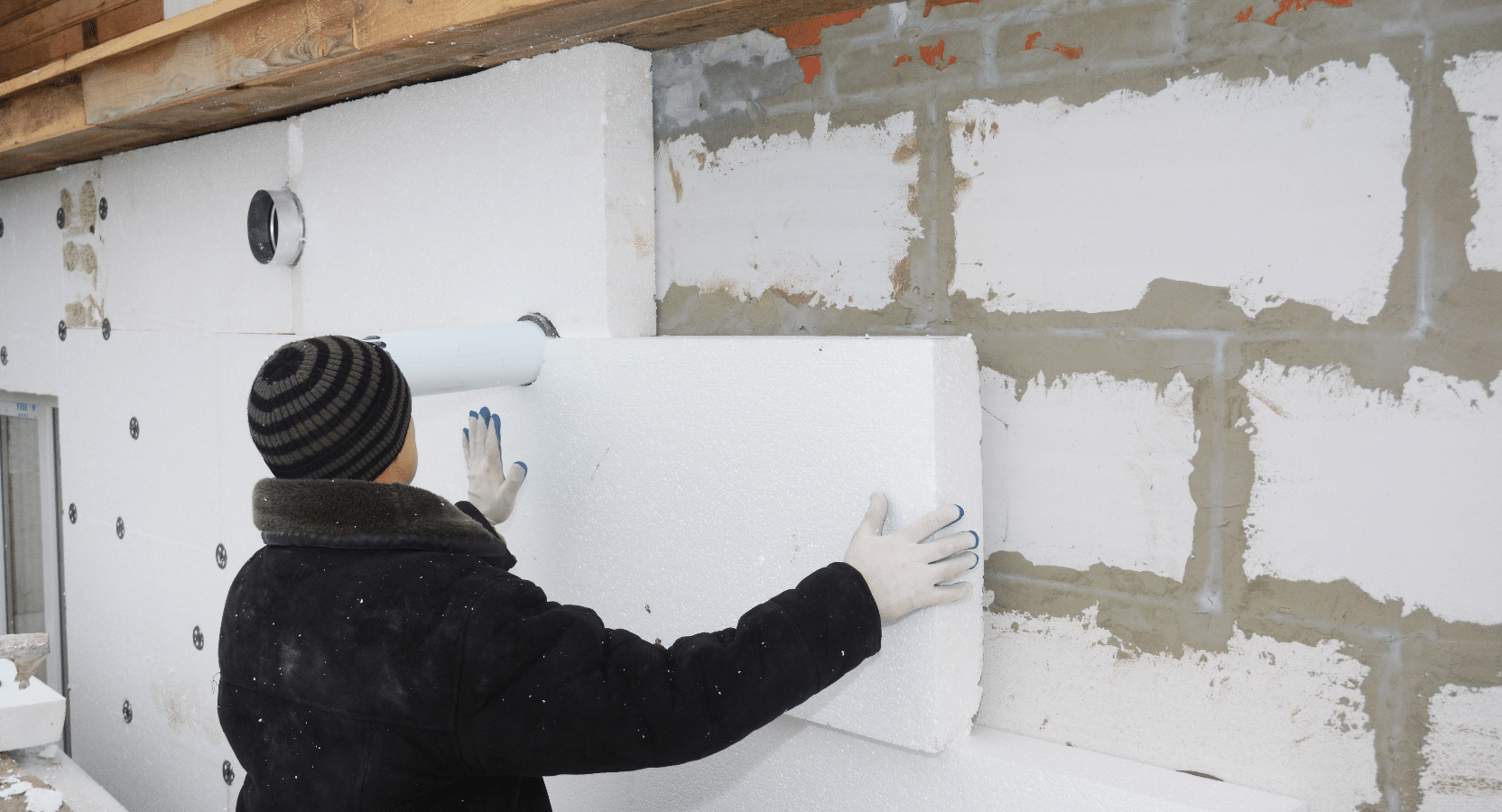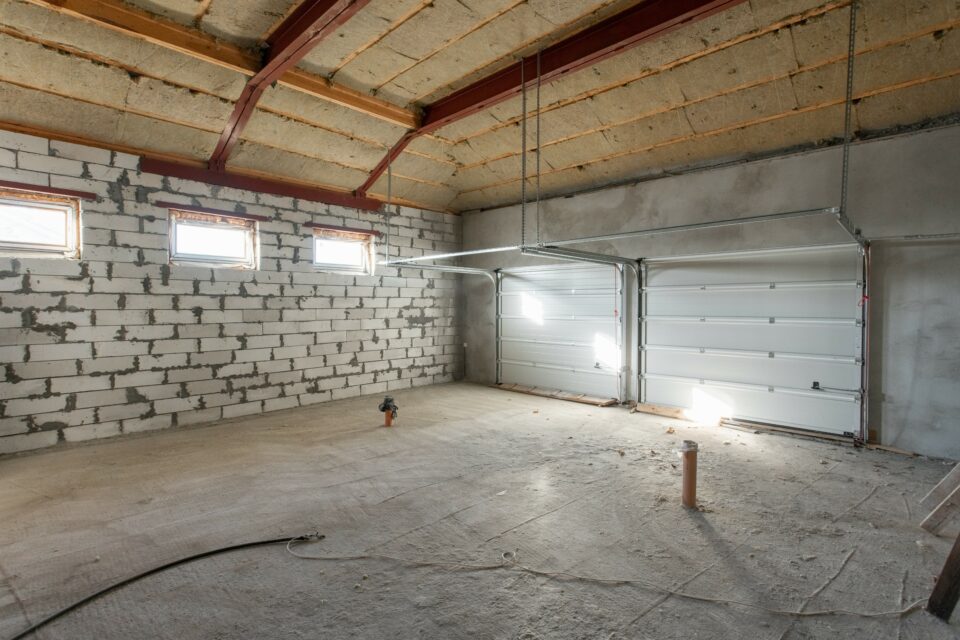How to Insulate a Garage: Useful Tips and Information
As a climate with cold winters and regular freezing temperatures, the UK is a problem spot when it comes to uninsulated garages. Metal roofs, concrete slab garage floors and brick walls can all become tremendously cold in bad conditions.
However, we are here to help you with some simple but clever tips that you can use to better insulate an attached or detached garage. There are several things to consider when insulating a garage including the following:
- Where you are insulating: The type of insulation you need will depend on the area you are insulating, such as a floor, ceiling or door. The structure may dictate the choices you have, garages with plasterboard walls will need different insulation to those with brick walls, for example.
- Cost of materials: Getting stung for material supply and delivery costs on large orders can make project costs spiral, so you need a reputable supplier. The level of insulation you require increases the cost of materials. But the more relevant factor for material costs is the size of the garage.
- Type of use: Many people convert garages into game rooms, storage areas, gyms, home theatres, home offices, hobby rooms, art studios and much more - so it is not just a place for parking a car. As a result, the intended use of the space influences the amount and type of insulation that you require.
Whether you have a giant detached four-car garage or a small attached carport, you can easily insulate your garage by using the right products. We offer many types of insulation for a wide range of uses, so please feel free to view them.
We understand the need to get building materials quickly. You will see the professionalism and dedication of our team when you call us on 01628 674910 - if there is a material you need to insulate your garage in the UK, we will find it!
Need Quality Insulation?
- Knauf Omnifit 34 Earthwool Insulation Roll (200/012/13512)
Call 01628 674910 To Discuss Availability
- Thermal Resistance: 0.034 W/mK
- Application: Glass Mineral Wool
-
2 - 3 Working Days
- Fire resistant
- Waterproof covering
- Knauf Earthwool FrameTherm Roll 32 (700/200/13112)
2 - 3 WORKING DAY DELIVERY
- Lambda 0.032 W/mK
- A1 Reaction to Fire
View All Insulation
How to Insulate a Garage Door
The most tricky part of insulating a garage is preventing air leaks from the door, which in its open position may be equivalent to removing an entire wall - thus eliminating the effectiveness of insulation. Even when closed, heat loss occurs.
Luckily, there are a couple of helpful options to deal with this issue:
- Insulation kits: A garage door insulation kit will make it much easier for non-DIYers to insulate their garage cheaply. They are simple to install, with multi-layered foil-faced sheets and sticky backs that you apply to the door.
- Foam board: You can use sheets of foam insulation similar to how you would insulate any ordinary wall. Foam boards can be more difficult to cut and apply to the door, so this method takes a bit more time to complete.
The door is the worst part of the garage structure in terms of heat loss. Once you have fitted the door with sufficient insulation you will be ready to tackle the rest of the garage. If you are not using the garage for a car, try to keep the door shut.
How to Insulate a Garage Floor
When you finish the garage floor with a material like concrete, garage floors become cold traps. Concrete floors are especially problematic. Cold can enter a garage at floor level as cold penetrates deep into the ground during winter.
Tips for insulating a garage floor include the following:
- Plywood: Wood is an excellent insulator compared to concrete, so placing plywood over a garage floor will help. However, to effectively insulate using this method you still need to fill the gaps with rigid foam insulation.
- Epoxy, rubber and carpet: Covering the surface with an insulating material such as epoxy, rubber or carpet will substantially reduce heat loss. However, such a finish may be difficult depending on the use of the garage.
Floors are tricky to insulate in garages but are very important if you are using the garage as a working, living or another type of habitable space. Check out our range of thermal floor insulation for great materials available at a range of budgets.

How to Insulate a Garage Wall
Insulated plasterboard is your friend when you have cold creeping in from walls. We recommend Celotex insulated plasterboard, which is useful for a wide variety of drywall or dry-lining projects, including many kinds of ceilings.
Things to remember when insulating different types of garage walls include the following:
- Metal walls: If you have metal walls you might be worrying, as metal is a magnet for both cold and heat. However, metal building insulation uses a foam board core to mitigate the effects of temperatures on the walls.
- Timber walls: Spray foam insulation can work well if you have a timber-framed garage with plasterboard. Spraying foam insulation into wall cavities plugs the gaps between wall studs, where drafty air can circulate.
Properly insulated metal and timber walls should deliver just as good of a performance as any other type of wall. You can check out our range of thermal wall insulation, which has many products for a range of uses including garages.
How to Insulate a Garage Ceiling and Roof
You are insulating not just for temperature but also for weather conditions. A cold roof in a garage might not sound like a big deal, but pitched roofs are susceptible to heat loss. Flat roofs also cause heat loss but are more susceptible to leaks.
The following tips can help to insulate different types of garage roofs or ceilings:
- Pitched roof: If you have a pitched roof, radiant barriers, typically made from aluminium, will successfully insulate from high heat - similar to how you insulate attic spaces.
- Flat roof: A flat roof can be more prone to the effects of rain since there is no run-off from gravity. As a result, foil-faced insulation may be a good option. Foil provides an additional moisture barrier that is useful for flat roofs
Check out our range of thermal roof insulation and thermal ceiling insulation products for details on a wide range of products that are suitable for insulating many types of garage roofs and ceilings.

How to Insulate a Metal Garage
Metal is great for speedy construction times and sturdy garages, you can even deconstruct a metal garage should you wish - but there are problems with heat loss in cold temperatures.
Fibreglass insulation is a popular and effective way to insulate poorly performing metal garages cheaply.
How to Insulate a Brick Garage
As many garages use brick single-skin solid walls without any insulation, heat loss is a common problem. However, it is very easy to apply many types of insulation to brick walls - in addition to finishing them with drywall and paint.
Using fibreglass insulation is a good way to finish a brick garage or any other type of wall, quickly and cheaply. You can apply additional finishes over this.
Insulating Garages in the Best Possible Way
Whether you need floor, wall, ceiling, or door insulation, Building Materials Nationwide offers all the products you need for the job. Browse our wide range of insulation now to find the perfect solutions for your garage, or get in touch via the contact form below. Our team will offer additional advice about the best insulation strategies and materials for your particular garage.
For tradespeople tackling garage insulation projects, we offer specialised trade accounts. Our trade customers are assigned a dedicated account manager who can assist with large, custom insulation orders. If you need bulk quantities of insulation or products not shown on our website, your account manager can source these through our extensive supplier network.
Sign up online for a Building Materials Nationwide trade account to access exclusive trade pricing and support.












